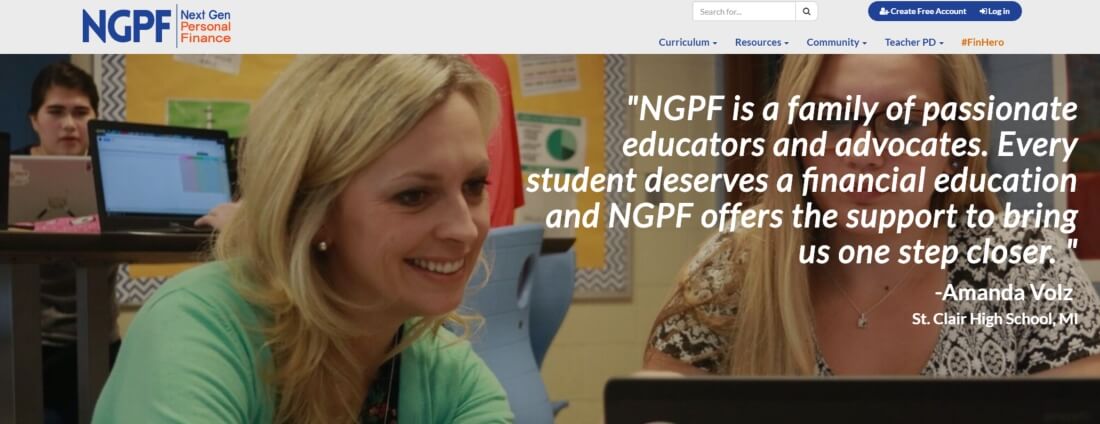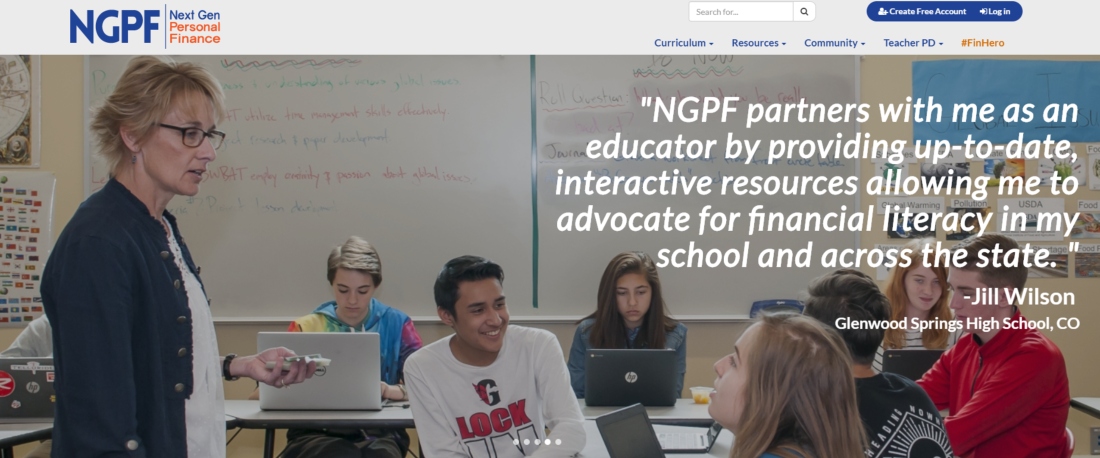
Personal finance is an important topic for consumers today, and a recent survey found that the majority of parents—from Millennials (55 percent) to Gen Xers (73 percent) and Boomers (79 percent)—believe that educating children about financial matters should begin at home. Unfortunately, they don’t always have the knowledge or resources to do so effectively. Among the parents who have attempted to teach their children about saving, investing and budgeting, a mere 19 percent feel they’ve been completely successful.
That’s where Next Gen Personal Finance can help. Founded in 2014, the California-based non-profit connects parents and educators with free resources, professional development opportunities and advocacy tools to improve the future financial fate of Gen Z.
RewardExpert spoke with Tim Ranzetta, Next Gen Personal Finance’s founder, about the inspiration behind the organization and how parents and teachers can use the free resources to prepare children and students for eventual financial responsibility.
Saving Educators Valuable Time
An entrepreneur, Ranzetta was inspired to create Next Gen Personal Finance after volunteering to teach a summer personal finance course for ninth graders at East Side College Prep in Palo Alto, California, in 2011.
“I thought I would just find something off-the-shelf that I could use as a curriculum,” he recalled, “but I didn’t find any resources that were particularly compelling, relevant or current. It took me dozens of hours of Google searches to cobble together a few good videos, articles and simulations.”

Ranzetta realized that if it was that difficult for him to pull together suitable educational resources, thousands of educators who wanted to teach their students about personal finance were probably struggling as well. “There are some good resources out there,” he added, “but it took at lot of time to find them. I wanted to start a nonprofit to share what I had found.”
Ranzetta was also inspired by the impact his personal finance course had on the students who attended. “East Side College Prep is a school that serves students who are trying to be the first in their families to go to college,” he continued. “They are primarily low-income kids and it inspired me to see how engaged they were in the classroom.”
But that wasn’t all. “When you teach low-income kids, oftentimes they are teaching their parents,” he said. “For example, they may come from an immigrant family that is not familiar with the financial system. There was a real opportunity for intergenerational learning to take place, too.”
Engaging Lessons, Videos and Games
Today, Next Gen Personal Finance’s collection of resources includes 12 curriculum units featuring 65 lessons, 200 activities and over 400 videos covering topics ranging from checking accounts, saving accounts, types of credit and managing credit to budgeting, investing, taxes, insurance, paying for college and financial pitfalls. The free curriculum has been utilized by over 10,000 teachers and countless parents.

“It’s a treasure trove of information,” Ranzetta said, “and I think it’s easy to find the resources that will work for your child. For example, our video library is easily searchable and sortable by topic area. The interactive library is also really popular because kids love playing games.”
Among Next Gen Personal Finance’s most popular interactive personal finance games are:
- Payback, which puts kids in the driver’s seat as they make decisions about paying for college. “Kids don’t think through the long-term consequences of the decisions they make,” Ranzetta said. “Payback gives them immediate feedback on how various money decisions are going to impact their student loan debt as well as a variety of social and emotional issues. The college conversation between a child and parent can be really difficult but this game provides a great entry point.”
- Spent, which simulates what it’s like to live paycheck-to-paycheck. “We can tell kids that it’s important to build up an emergency savings fund or let them play Spent and experience what it feels like not to have one,” Ranzetta said.
- Cat Insanity, which teaches kids about the stress of high-interest debt. “It’s a cute little game where you feed cats, which represent loans,” Ranzetta said. “In each round, the number of cats goes up because of compounding interest. Eventually, you don’t have enough food to feed all the cats and chaos breaks out. Teachers who have used this in the classroom tell us that kids feel overwhelmed and have a visceral reaction to it.”
Ranzetta also recommends parents encourage their kids to try out the OnlineBank Simulator. “We need to teach students how to bank in the 21st century,” he said. “The simulator shows them how funds flow through our digital world, and my hope is that we’re going to save them millions of dollars in overdraft fees because we’re teaching them how the system works.”
More Than Dollars and Sense
Avoiding overdraft fees isn’t the only reason Ranzetta feels personal finance education is important for today’s younger generations. He said Next Gen Personal Finance’s curriculum also helps kids develop other non-financial skills they’ll need in the real world.
“They learn psychology and research skills,” he explained. “They learn analytical skills and how to read graphs and calculate percentages. They learn about decision making and develop soft skills as well. Things like how to work as a team member, expectations in the workplace, how to communicate. Exposing students to all of this at a young age can prevent future issues and help them develop good habits and ways of thinking about things.”
To learn more about Next Gen Personal Finance and explore the free resources offered, visit www.ngpf.org. Teachers can also register for upcoming professional development workshops and webinars.
